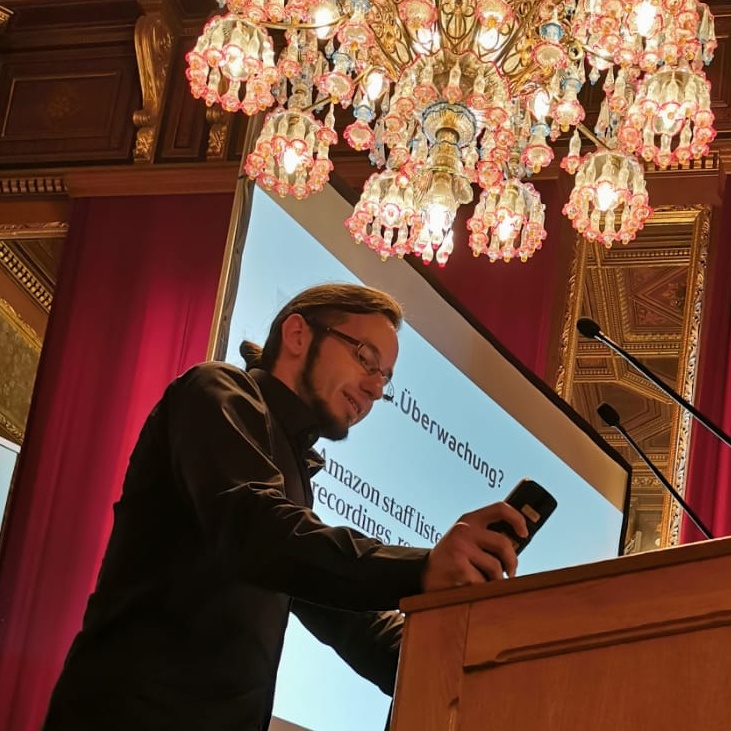
Pascal Marc Wagner is an M.A. cognitive and cultural linguist with a B.A. in English Studies and German Media and Human Rights Law from the Ludwig-Maximilians-Universität Munich. His theses concerned gaming-specific language in online settings and spell name neologisms in JRPGs. Currently, he works as project referent at the Goethe-Institut Munich and teaches English linguistics at the Johannes Gutenberg-Universität Mainz. He founded the website languageatplay.de to further advance the field of linguistics into the study of digital games. In 2020, he co-founded the antifascist network “Keinen Pixel den Faschisten!”. Reach him on Twitter as @indieflock and @languageatplay.
“Any sufficiently advanced magic is indistinguishable from technology” – How Semantics Produces Science from Spellcasting
FROG 2021 – Talk
The line between fantasy and science-fiction blurs in many games. A mage in Skyrim or Demons’ Souls might be able to sling the same fireballs, to shoot similar lightning, to levitate cheese wheels just like the protagonists of BioShock or Prey. In playable effect, the differences between supernatural or science-fictional forces are often marginal, if existent at all. All examples and many fictions beyond them use depletable resources that need to be refilled via consumables to utilise these skills, as well as locking their usage or strength modifiers behind some kind of parameter thresholds. Indeed, seeing that not scientific plausibility, but more likely a “plausible possibility” of science-fictional “technomancy” is the basis for most Sci-Fi examples, the delineation between fantasy and Sci-Fi becomes even blurrier. The talk develops, from a cognitive semantic perspective, that the difference of perception in these examples is one of suspension of disbelief: Fantasy titles like Skyrim or Dark Souls mince no words talking about magic, ascribing its existence to deific intervention or natural spirits. More Sci-Fi adjacent games like BioShock or Prey however choose different, more (pseudo-) scientific explanations, such as gene therapy or neuron transplantation as cause for people being able to “technomance”, to effectively spellcast in a semantic framework of fictional, but nevertheless scientifical, rule-bound definition. The presentation’s outlook on this technomancy is therefore a culturally and cognitively linguistic one, utilising semantic definition to delineate the difference between Sci-Fi and Fantasy – or possibly not to.
0


